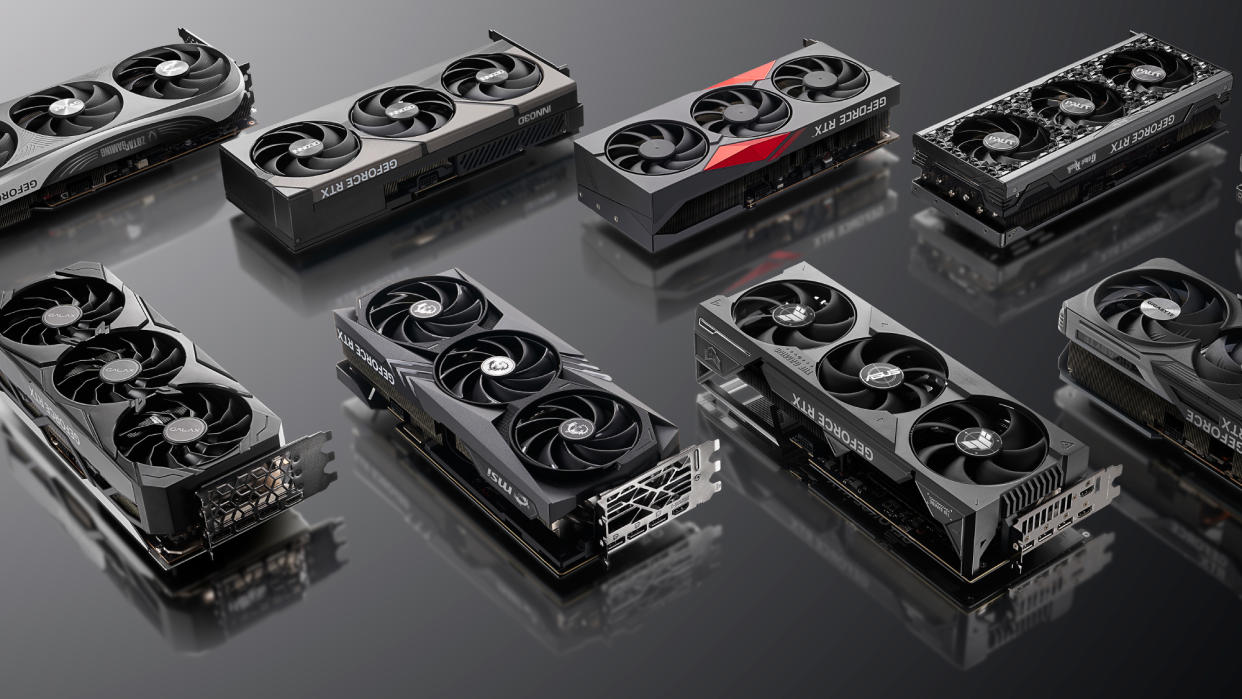Nvidia RTX 5090 release details just tipped by leaker — and it could be heavily influenced by AMD’s RDNA 4

Nvidia’s RTX 40 series of graphics cards launched at the tail end of 2022, and while they’re not exactly long in the tooth, plenty of PC gamers are wondering when the next-generation Blackwell cards will launch.
Now the hardware-focused YouTuber Moore’s Law is Dead has word from a source at Nvidia that the final decision may hinge on GPU rival AMD.
“Blackwell is being prepared to be ready to launch in Q4 2024 if we want it to,” the source is quoted as saying (italicized emphasis courtesy of Moore’s Law is Dead). “Whether or not we do depends on how Ada [RTX 40-series cards] sales are doing, and how competitive we believe RDNA 4 [AMD’s next-gen Radeon GPU] will be during the holiday shopping season.”
With AMD’s RDNA 4 rumored to be targeting the mid-range segment of the market, it’s not clear how much of a threat it will actually pose to Nvidia’s high-end products. But assuming the quote is legitimate, it sounds like the company is aiming to keep its options open.
Even if Nvidia decides to hold off in 2024, it doesn’t sound like gamers will have too long to wait, however. “But no matter what, we are currently planning to make a big deal about RTX 5000 efficiency at CES 2025,” the source continued. Given CES — the Consumer Electronics Show — is held in January every year, it sounds like RTX-50 series cards will arrive in the first quarter of 2025 at the latest, assuming those plans don’t change.
The source also gave some clues about the raw power of the Blackwell architecture. “As for performance, Blackwell’s rasterization uplift over Ada will not be as impressive as Ampere [RTX 30] to Ada [RTX 40]. However, the RTX 4090 was cut down by more than 10%, so it’s plausible we could make the 5090 ‘feel’ like a similar uplift if we felt threatened.”
That might feel a little disappointing, given the RTX 40 launch was a touch underwhelming, but as our sister site TechRadar points out, consumer graphics cards probably won’t be Nvidia’s bread and butter for too much longer. Thanks to the generative AI boom, demand for Nvidia’s silicon in a far more profitable sector has gone through the roof.
If the current AI gold rush isn’t a false dawn, that could mean Nvidia completely pivots away from gaming in the next few years. So perhaps we should just be grateful that there’s a roadmap for the RTX 5090 at all, even if ultimately it isn't the giant graphical leap forwards that gamers dream of.
